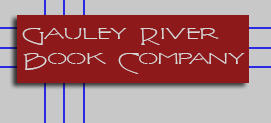
EXT. LEWISBURG RESTAURANT, ESTABISHING – NIGHT
Several dimly illuminated lamps are seen on the extended porch on the front of a white clapboard restaurant with large windows through which additional lamplight is seen. A group of well-dressed men are seen leaving the restaurant.
INT. LEWISBURG RESTAURANT – NIGHT
POV OF MAN entering the front door as he looks across the room to see DR. RUCKER and JAMES GARDNER sitting at a table placed against the wall. Another MAN and FEMALE COMPANION are departing from their table and both frown as they pass DR. RUCKER and GARDNER.
RUCKER
Ignore those people, James. They simply are not used to seeing Negroes having dinner in public. As wonderful as Lewisburg is, it’s probably the northernmost southern town and change comes slowly.
GARDNER
They don’t bother me, Dr. Rucker. They will change, eventually. This town had a Union cavalry charge down its main street in 1862 and many of the brothers and cousins of these people are buried in the Confederate cemetery here. Old pain dies hard. You’re from Virginia, far to the east. Why are you sitting here with me instead of walking by with a frown?
RUCKER
I’m a traitor to my family back in Lynchburg, James. We’re an old Scotch-Irish family and I used to send my summers with a favorite uncle living in the mountains of today’s West Virginia. He was an abolitionist and I became one, too, and when I started speaking out against Virginia’s secession I was arrested and charged with treason to Virginia, the same charges they used to hang John Brown. I was able to escape through the help of a cousin who bribed a guard and I came to West Virginia where I became a Union army officer.
GARDNER
So Lewisburg welcomed you and you’ve been here ever since?
RUCKER
Welcomed is not quite what happened. Greenbrier and Pocahontas counties were split in their sympathies. Many men went to the Union, but a large number of families favored Virginia and sons and fathers served in the Reb army. The famous Greenbrier Rifles were from here and many of the men and boys died while fighting in the old Stonewall Brigade. Jackson was also from West Virginia and the boys rallied to him. Welcomed in Greenbrier? I wouldn’t call it that.
GARDNER
Stonewall Jackson’s brigade? How many men served?
RUCKER
Two entire infantry companies were raised here for the Twenty-seventh Virginia Regiment, Companies E and F. Company D was from Monroe County to our south. A lot of them never returned home.
GARDNER
I grew up near here, but I didn’t know that many men served with the Rebels. Now I understand why they frown when they see us together. Will this affect the trial?
RUCKER
It’ll have an impact, JAMES. Many Shue families were Unionists and the jury will be extremely biased against our client. This is one reason I accepted the case when Judge McWhorter asked me to serve as a defense counsel.
EXT. RESTAURANT FRONT PORCH – NIGHT
RUCKER and GARDNER are sitting in wicker chairs while smoking cigars. RUCKER’s very heavy beard is in danger of igniting and he holds an open palm beneath the cigar when he puffs. GARDNER is dressed in a black suit, sits very erect, and appears to be as uncomfortable as RUCKER is comfortable.
RUCKER (after exhaling a cloud of smoke)
Well, James, we’ve been appointed by Judge McWhorter to defend Shue, a man well worth despising, but we need to maintain my legal reputation as we build yours. You are starting to grow in this legal profession of ours as I begin to plan a way out and into a soft political patronage job. That postmaster job I had here was ideal, what with no real work to do.
GARDNER (nervously looking about)
We shouldn’t have any problem with this case, Dr. Rucker. Shue probably killed his wife and deserves punishment, but the prosecutor only has the mother’s story of being visited by her dead daughter who told her the entire story.
RUCKER (chuckling softly)
The judge and the two prosecutors are close to the United Confederate Veteran Camp here and all of them are democrats. They think you and I will fail and be put in our respective places.

